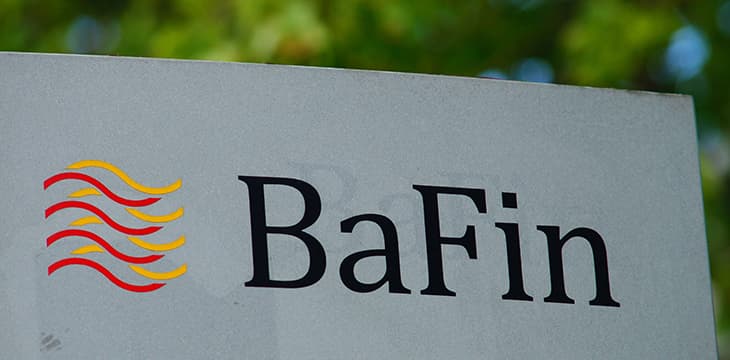|
Getting your Trinity Audio player ready...
|
The Federal Financial Supervisory Authority or BaFin, Germany’s financial regulator, is reminding firms that want to issue electronic securities of its registration guidelines as provided in the Electronic Securities Act that came into force in June 2021.
In a new leaflet BaFin published, the regulator stated that the deadline for application for licenses would end on June 10, 2022. BaFin also reiterated the application requirements for both new registrants and companies who want to transition their existing services to offering securities with blockchain technology.
The process involves submitting a permit application that contains certain required details. One of these details is information on the firm’s IT security systems. BaFin expects this to be well spelled out with a risk assessment attached.
The application should also contain the number and details of the firm’s directors and managers who will be screened based on how “reliable and technically suitable” they are. Additionally, the application should spell out money laundering and terrorist financing prevention measure the firm has in place.
A fee of 6,336 euros ($6,745) is also required, and the application must be signed by authorized personnel of the company. Once these are provided, the BaFin reserves the right to approve or reject the application and ask questions for more information.
The Electronic Securities Act was first introduced in 2020 before coming into force in 2021. In particular, the law allows for the use of blockchain technology to issue securities in place of paper certificates.
Germany still broadening scope of digital currency regulations
The Electronic Securities Act is only one example of German laws that have fostered the adoption of blockchain technology and digital currencies. This year, the European country issued a nationwide digital currency tax regulation legislation that clarified taxation of the assets.
The law allows for capital gains tax to be waived for digital currencies held or staked for more than a year. Before the tax law, the country had also implemented a licensing regime for digital currency and blockchain companies.
It has also encouraged more institutional investment in digital assets with the passage of a law that allows funds to allocate up to 20% of their portfolio to digital assets. These regulations have made Germany the most digital currency-friendly jurisdiction in Q1 of 2022, according to a study by Coincub.
Watch: The BSV Global Blockchain Convention presentation, BSV On-chain Ecosystem Development in Europe
https://youtu.be/ggbZ8YedpBE?t=25004

 03-04-2026
03-04-2026 




